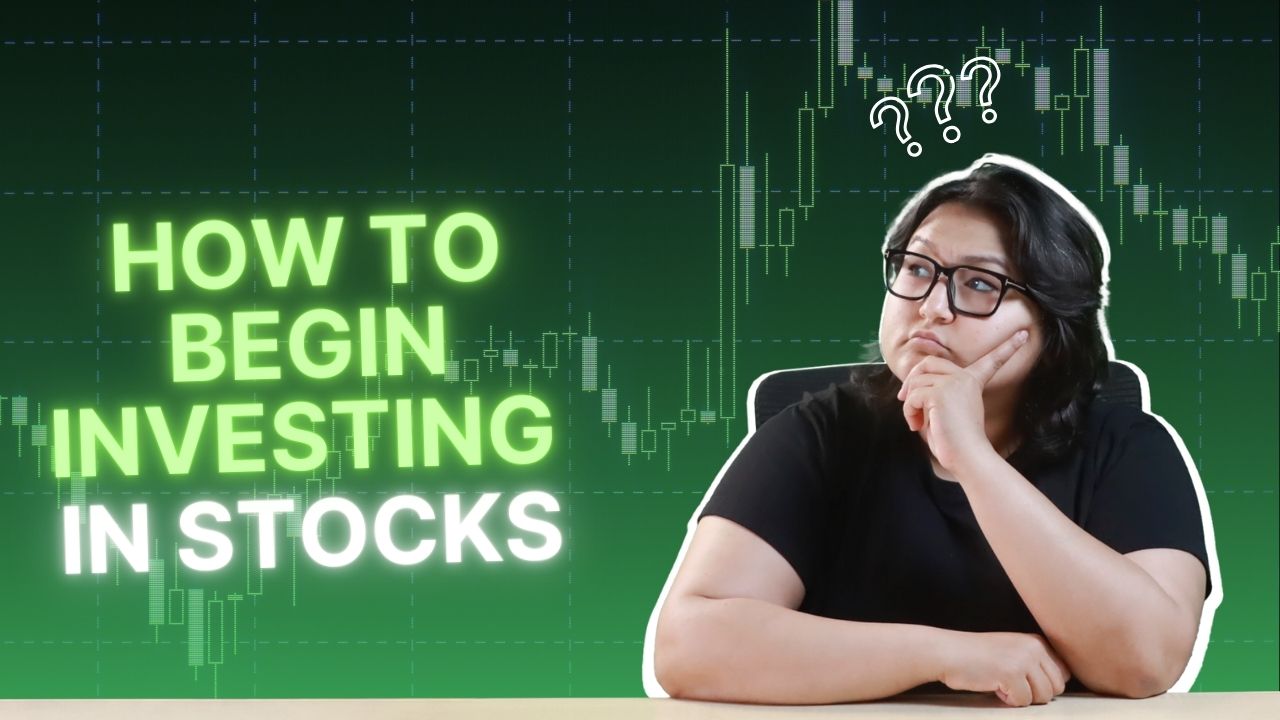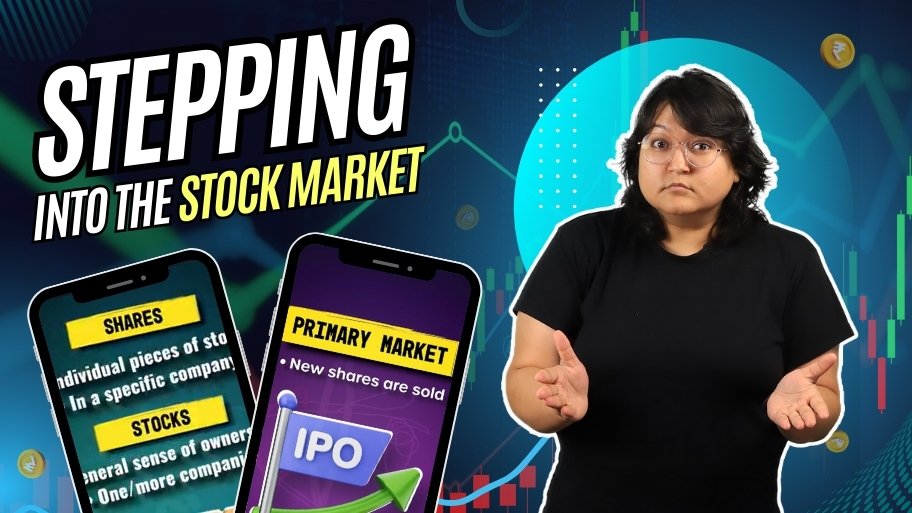Stepping into the Stock Market
Episodes

E01: How to Begin Your Journey of Investing in Stocks
03 mins
Investing in stocks could need a few essentials before you begin. In this video, we’ll take you through the steps that might help you set up your account, organise documents, and get ready to trade. We’ll start with a SEBI-registered depository participant or DP. You’ll learn that a DP acts as the link between you and central depositories like NSDL and CDSL. We’ll discuss how a Demat account holds your shares digitally whereas a Trading account helps with buying and selling them. We’ll talk about documents like your PAN, Aadhaar, passport, voter ID, bank passbook, etc. that you might need to keep handy. We’ll look at the account opening process, from filling in personal details to uploading KYC documents and e-signing the form. We’ll see how once your accounts are active, you could link them to make your transactions smoother and hassle-free. We’ll also explore how you might need to add funds to your Trading account to be able to buy and sell shares. We’ll learn how you could do so through UPI, net banking, or other methods. With these essentials in place, you could be all set to start your stock market journey.

E02: Which Benchmarks Like Sensex and Nifty Should You Keep an Eye On
03 mins
The stock market might seem complex at first, but understanding indices could make things a bit simpler. In this video, we’ll talk about what indices are and how they track a group of company stocks. We’ll begin with how indices work like scoreboards, giving you an overall sense of how a section of the market is performing. You’ll learn how Sensex and Nifty reflect movements in the Indian stock market. We’ll uncover how Sensex tracks 30 of the largest companies listed on the BSE, while Nifty follows 50 leading companies on the NSE. We’ll also take a closer look at other indices like Nifty Bank and Nifty Next 50 under NSE, along with BSE 500 and BSE Bankex under BSE. We’ll explore how these indices might help you understand specific sectors and their behaviours within the larger market space. You’ll also discover that there are many more indices that might offer a more comprehensive view of the stock market. By the end, you might get an idea of how indices could help you assess market conditions, compare returns, and refine your investment strategies.

E03: Jargon Wagon 20 Common Stock Market Terms to Know
06 mins
If words like “bullish market,” “P/E ratio,” or “volatility” have left you scratching your head, this video is just what you need! Join us as we cover 20 essential stock market terms for every aspiring investor. First, we’ll introduce the basics of the stock market—what it is, how it works, and the role of stock exchanges like NSE and BSE. Then, you’ll get a grip on terms like bull and bear markets, market indices, and how market prices fluctuate based on demand and supply. Next, the video will take you through how trading works. We start with SEBI—the regulator and move to important facilities like demat and trading accounts. We'll also break down terms like bid/ask prices, and brokers. You’ll also get to know about how market orders and limit orders are different. Finally, we’ll help you make sense of key financial indicators such as portfolio, market cap, dividends, volume, and the P/E ratio. These concepts could help you evaluate companies better and build a more balanced portfolio. Whether you’re a curious beginner or someone brushing up on the basics, this glossary-style guide could simplify the stock market for you. Stay tuned to Academy for more investment insights.

E04: Shares Stocks Bonds Where All Can You Invest in The Market
04 mins
When it comes to market investments, most people immediately think of stocks and shares. But there’s a whole spectrum of investment options you could explore. This video breaks down several such types of investments, each with their unique characteristics, benefits, and risks. First, we’ll cover the basics, starting with shares and stocks, which refers to holding partial ownership in companies. Next, you’ll dive into bonds, which tend to have lower risk but also offer lower returns. For those seeking diversification, mutual funds and Exchange-Traded Funds (ETFs) can be suitable options. They offer professional management and flexibility. We’ll also explore gold investments, including digital gold, Gold ETFs, and Sovereign Gold Bonds. They can be suitable for those looking to hedge against inflation. If you're interested in realty without actually owning property, Real Estate Investment Trusts (REITs) might be an ideal choice. The video further covers derivatives, government-backed securities, and even opportunities to invest in international markets. These diverse asset classes can serve different investment needs, from those seeking high returns to those looking for stability. No matter your risk appetite or financial goals, there’s an investment type that aligns with your strategy. Tune in to Academy for more such insights on building a diversified portfolio!
What to Watch Next
All
























